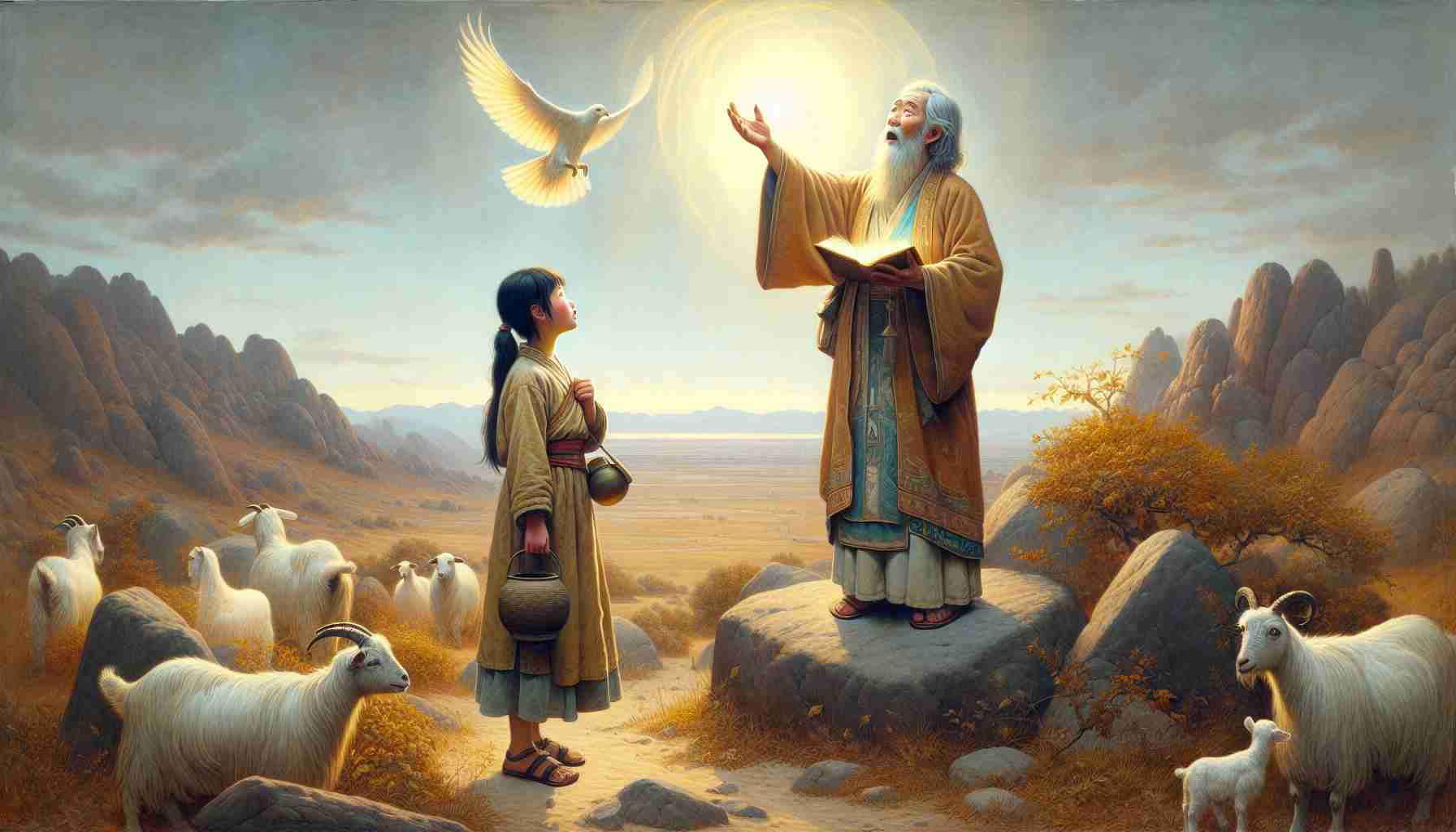

The wind rolled down from the mountains that morning, kicking dust into the folds of my robe as I stood beside my father. I was sixteen, the age when boys started walking farther than just behind their fathers—we walked alongside them. But today, I lagged a few paces behind. We stood among the thousands gathered on the edge of the wilderness, just before the Promised Land. Moses—our teacher, the one who had spoken with God—was preparing to speak what he said would be his final words to us.
You wouldn’t know me from any scroll or carving. I was just Levi, son of Karmi, from the tribe of Zebulun. But I remember every word of that moment, because it changed how I understood who we were… and who I would become.
Moses’s voice, though aged, was clear. Strong. He began with one word: “Ha’azinu”—“Give ear.” It felt like the mountains themselves leaned in to listen. And then he sang.
This wasn’t like the songs we sang when the sea split. This was something deeper—half warning, half hope. Moses told of a faithful God, perfect in justice, who had given everything to our people. And yet, we had turned away, again and again. His words stung. I felt them land heavy in my chest, like stones. He called us a crooked generation. I hated realizing how true he was.
But then came the other verses—about how God found us in the desert, how He encircled us, trained us, cared for us like the pupil of His eye. Moses’s voice trembled as he spoke of the future trials, of nations that would rise against us, and of Israel forgetting her Maker. And yet, woven through it all, one certainty stood tall: God would never forget us.
I looked up at my father—he wasn’t a man who cried. But now, there they were, silent tears streaking through the lines in his face. I asked him, quietly, “Why sing it if it’s so painful?”
He placed his rough hand on my shoulder and said, “So we never forget. Not the mistakes, but the mercy.”
Later that day, I carved the first lines of the Song into a smooth stone I found near the tent. My hand wasn’t steady, and the letters weren’t pretty. But they were mine. That stone traveled with me when we crossed the Jordan River. It sat at the entrance to my tent when I raised my family. When enemies came, when crops failed, when I questioned everything—I would run my fingers across those etched words.
I didn’t always understand God’s ways. But every time I read that Song, I remembered: even when we fail, He does not. Ha’azinu wasn’t just something Moses gave us—it was the anchor that held through the storms he saw coming.
And now, as I grow old and my sons look to me for answers, I tell them what Moses showed us: that truth carried in song can carry a people through anything.
The wind rolled down from the mountains that morning, kicking dust into the folds of my robe as I stood beside my father. I was sixteen, the age when boys started walking farther than just behind their fathers—we walked alongside them. But today, I lagged a few paces behind. We stood among the thousands gathered on the edge of the wilderness, just before the Promised Land. Moses—our teacher, the one who had spoken with God—was preparing to speak what he said would be his final words to us.
You wouldn’t know me from any scroll or carving. I was just Levi, son of Karmi, from the tribe of Zebulun. But I remember every word of that moment, because it changed how I understood who we were… and who I would become.
Moses’s voice, though aged, was clear. Strong. He began with one word: “Ha’azinu”—“Give ear.” It felt like the mountains themselves leaned in to listen. And then he sang.
This wasn’t like the songs we sang when the sea split. This was something deeper—half warning, half hope. Moses told of a faithful God, perfect in justice, who had given everything to our people. And yet, we had turned away, again and again. His words stung. I felt them land heavy in my chest, like stones. He called us a crooked generation. I hated realizing how true he was.
But then came the other verses—about how God found us in the desert, how He encircled us, trained us, cared for us like the pupil of His eye. Moses’s voice trembled as he spoke of the future trials, of nations that would rise against us, and of Israel forgetting her Maker. And yet, woven through it all, one certainty stood tall: God would never forget us.
I looked up at my father—he wasn’t a man who cried. But now, there they were, silent tears streaking through the lines in his face. I asked him, quietly, “Why sing it if it’s so painful?”
He placed his rough hand on my shoulder and said, “So we never forget. Not the mistakes, but the mercy.”
Later that day, I carved the first lines of the Song into a smooth stone I found near the tent. My hand wasn’t steady, and the letters weren’t pretty. But they were mine. That stone traveled with me when we crossed the Jordan River. It sat at the entrance to my tent when I raised my family. When enemies came, when crops failed, when I questioned everything—I would run my fingers across those etched words.
I didn’t always understand God’s ways. But every time I read that Song, I remembered: even when we fail, He does not. Ha’azinu wasn’t just something Moses gave us—it was the anchor that held through the storms he saw coming.
And now, as I grow old and my sons look to me for answers, I tell them what Moses showed us: that truth carried in song can carry a people through anything.